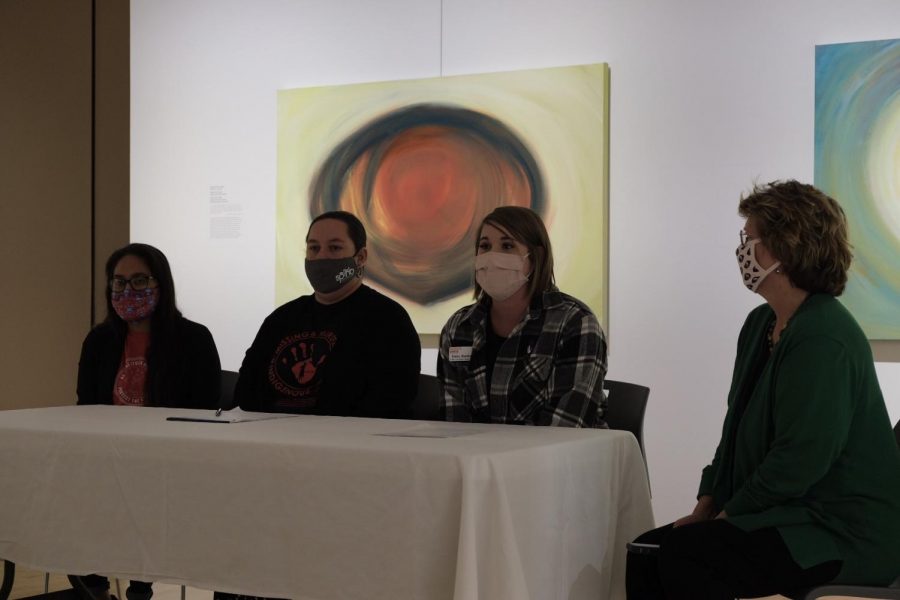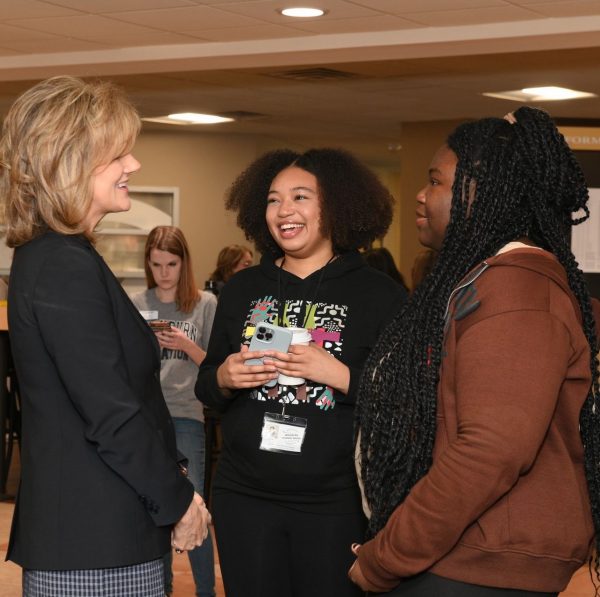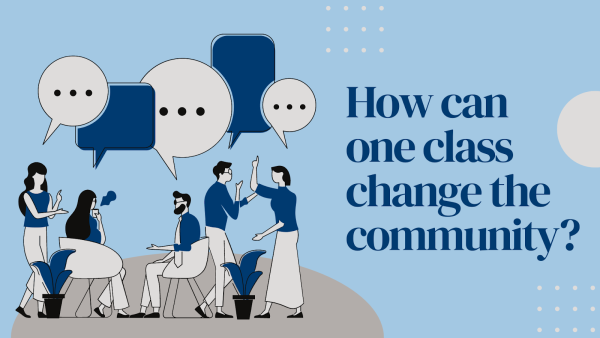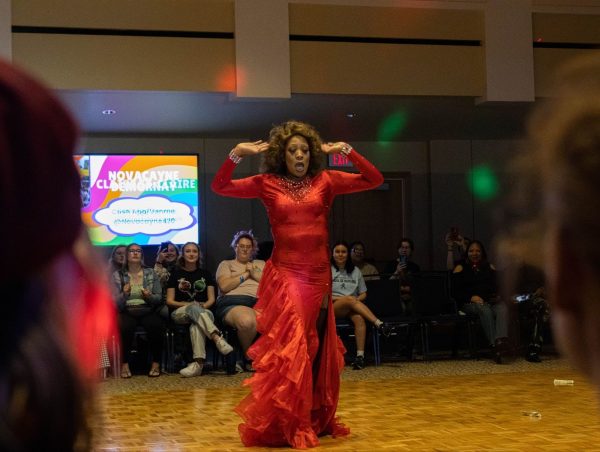Native American women share their perspective at Sisters Rising event
Three panelists participate in the discussion and share their own experiences. The Sisters Rising event was held at the Rita Blitt Gallery, Topeka, Ks on November 4, 2021.
To recognize and honor the Native American Heritage Month, the Office of Diversity and Inclusion hosted a screening of “Sisters Rising” followed by panel discussion on Nov. 4, 2021, at the Rita Blitt Gallery, next to White Concert Hall. Sisters Rising is a powerful documentary about six Native American women fighting to reclaim personal and tribal sovereignty.
Dr. Sharon Sullivan, a professor of women’s studies and the moderator of the event, said this film talks about the violence against Indigenous women that they are experiencing in their own home and in their own communities. She also spoke of ways that we could help reduce that violence and what resources are available to them. A big part of it is about raising awareness because a lot of non-native people are not aware of what’s happening to Native American women and men.
Native American women are extremely vulnerable to violence: 4 out of 5 experience violence, and 1 out of 3 are raped. Sisters Rising confronts this staggering issue through the voices of six survivors turned advocates. Dawn White is former Army and is now a tribal police officer amid the North Dakota oil Boom. Sarah Deer is a lawyer and scholar fighting for legislative protection for Native women. Loreline Lacroix and Lisa Brunner are grassroot advocates dedicated to supporting survivors of violence and influencing legislative change. Patty Stonefish is teaching self-defense to the native women and Chalsey Snyder is working to introduce the first anti-sex-trafficking code in tribal law.
The experiences these women share is heartbreaking and sometimes these tales can be harsh and difficult to hear, but it is necessary because it exposes the individual and societal injustice and ongoing sexual violence against Indigenous women in the United States. One of the issues underlined in the film, which almost all Indigenous women face is the jurisdiction. Tribes cannot prosecute most non-Indigenous people for the crimes committed on reservations while most of the perpetrators of violence against native women are non-natives. Advocate and survivor Sarah Deer argues no system values the life of Native women and they are viewed as “safe victims” by the perpetrators due to the lack of accountability and gaps in authorities.
The hour-long screening was followed by panel discussion on the themes of the film. The panelists of the discussion were Sierra Two Bulls, Jessica Wheeler and Emily Stiemel-Handy.
Two Bulls is Oglala Lakota. She is an adjunct faculty of Haskell Indian Nations University. She is a social worker and grassroot community organizer working for prevention of violence against native women. Stiemel-Handy is the Public Education Coordinator at the YWCA center for safety and empowerment. Wheeler is a lead victim specialist for Potawatomi Nation Tribal Victim Services Program.
The panel highlighted barriers to reporting sexual assaults and domestic violence issues by the victims and survivors.
“Only around 30% of sexual assault and domestic violence is recorded, and that’s even less when we are talking about survivors who are oppressed and silenced every step of the way,” Stiemel-Handy said. “Many survivors don’t feel safe, even going to advocacy agencies or law enforcement out of fear, shame, embarrassment and sometimes they still love and care about the person who is causing them harm.”
Wheeler talked about the issue of representation when it came to filling out forms.
“When it comes to violence against native women, there are a lot of reports which are not accurately reported,” Wheeler said. “Today when I was looking at KBI Domestic Violence, Rape and Stalking report from 2020, it comes to me that non-natives weren’t even classified as a race. There was White, Black, Hispanic and Asian, but there wasn’t even other. So, it’s hard to know what’s happening when it’s not even being recorded correctly. It also acts as a barrier. Why would women report if their number doesn’t even matter.”
Panelists were also encouraged to create awareness and be supportive to the victims and survivors to resist sexual violence and abuses.
“I just want everybody to bring awareness to these issues and show that the lives of victim’s and survivor’s matter. Their stories matter and we all must do better because they deserve better,” said Two Bulls.
The panel urged attendees to be a voice for those that have been silenced for so long.
“Sexual and domestic violence against native or non-native women is not just the survivor’s issue or a victim’s issue or a women’s issue. It’s a community-based issue,” Stiemel-Handy said. “Until we notice that and until we start looking at this as a societal issue, and start holding the abusers and the perpetrators accountable, we are always going to have domestic violence and sexual assault plaguing our communities.”
Edited by Ellie Walker and Simran Shrestha
Your donation will support the student journalists of Washburn University. Your contribution will allow us to purchase equipment and cover our annual website hosting costs.








